The Three Johns Class 2
Mike Ervin
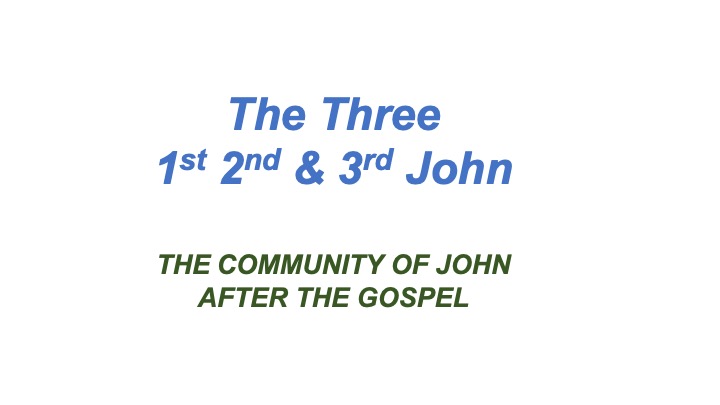

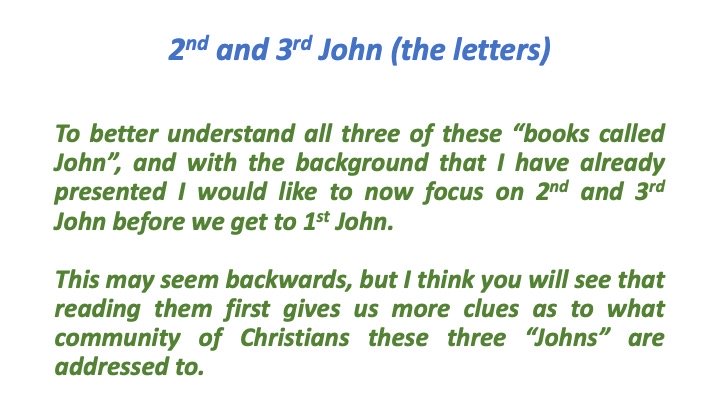
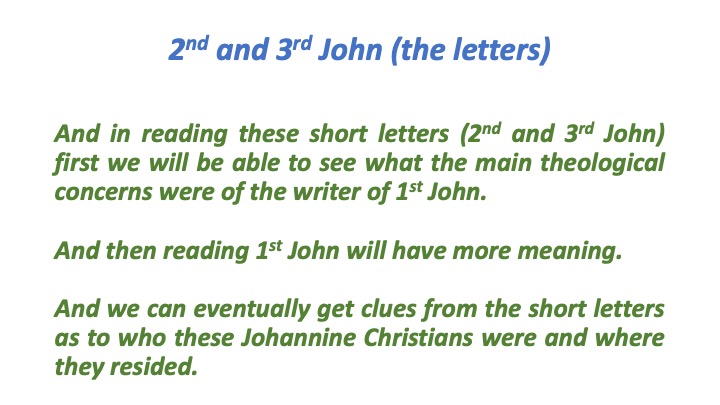
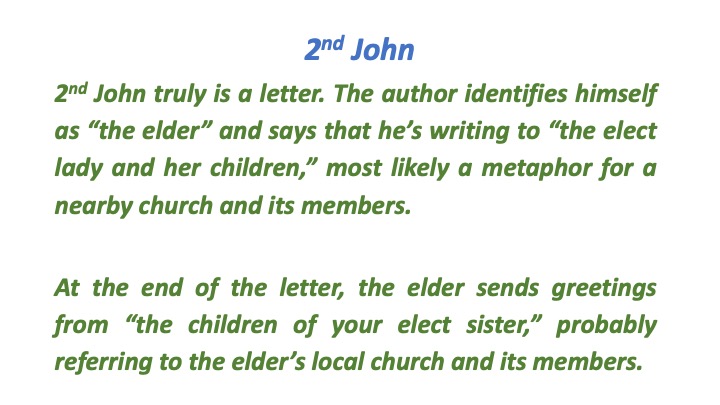
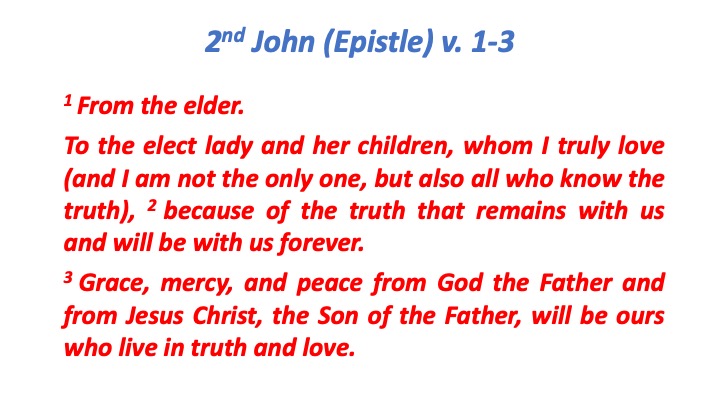
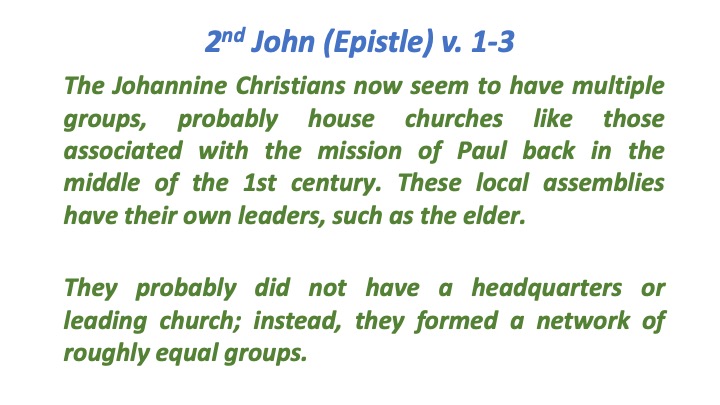
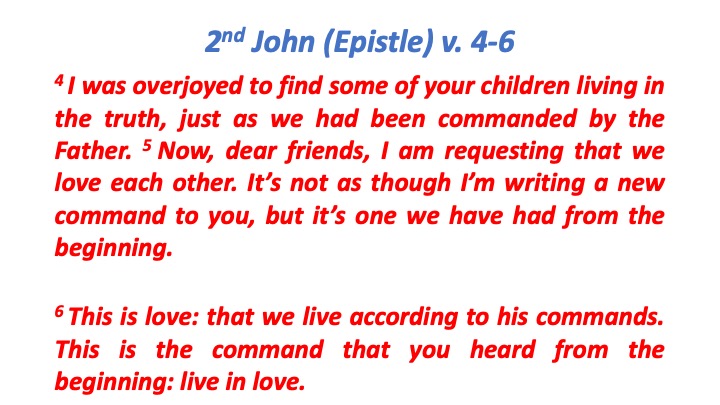
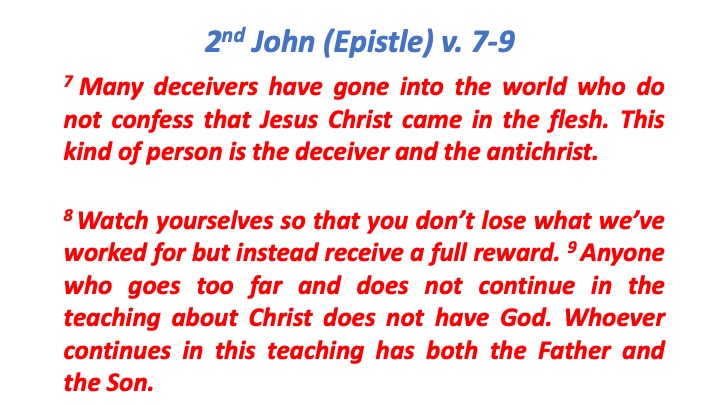
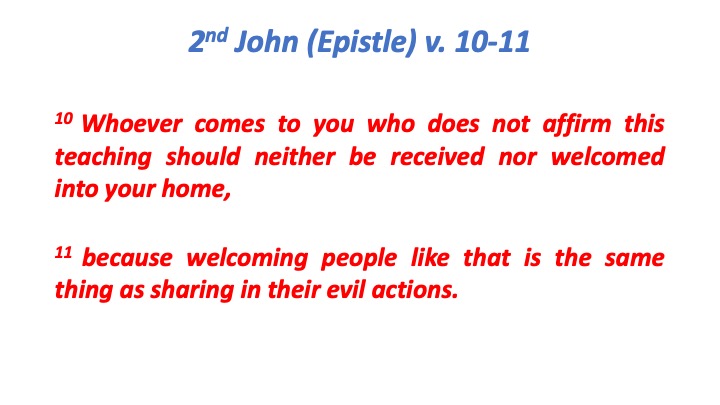
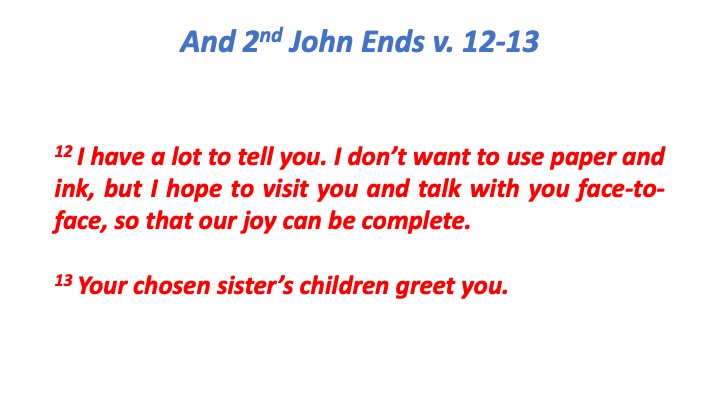
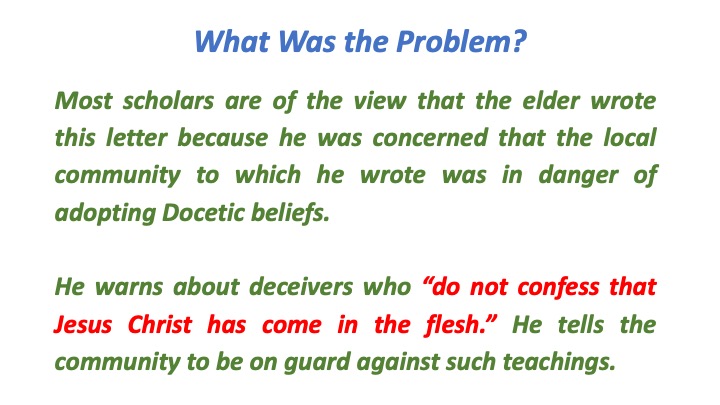
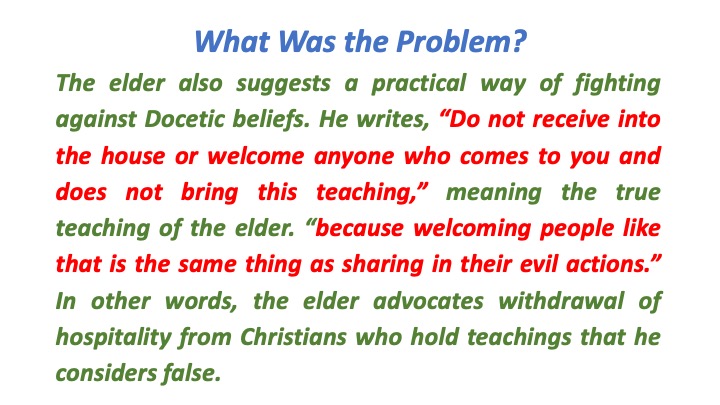
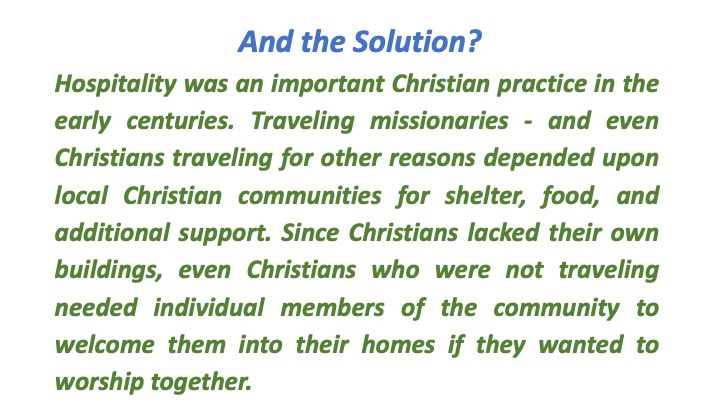
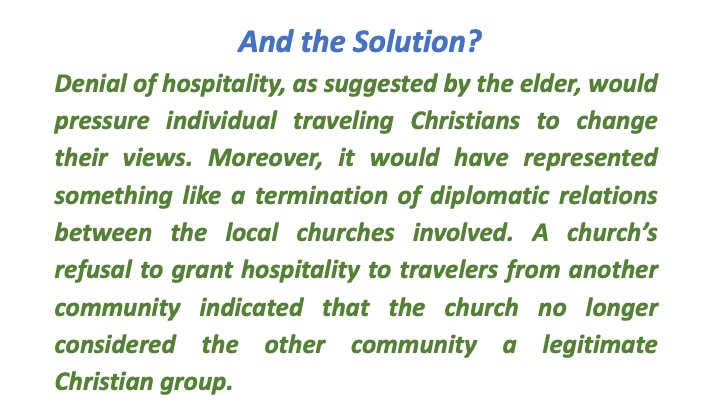
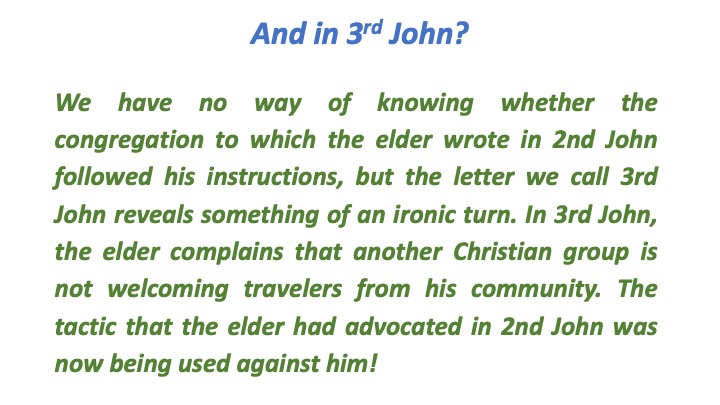
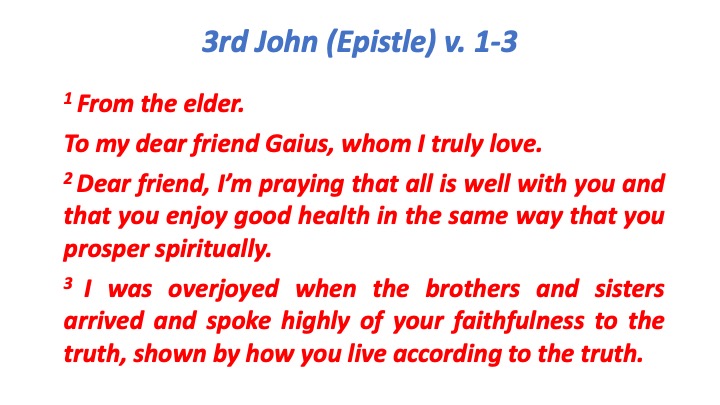
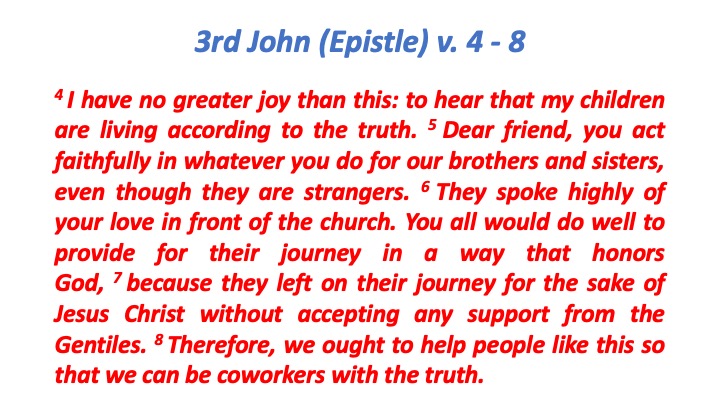
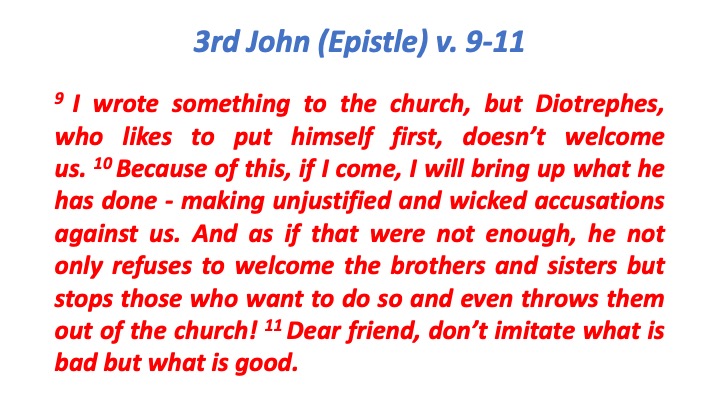
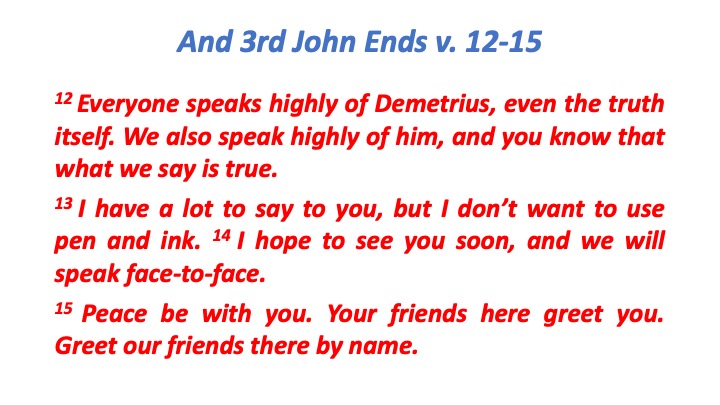
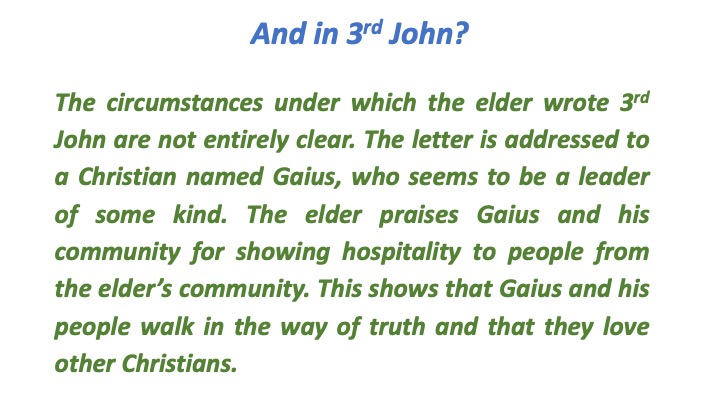
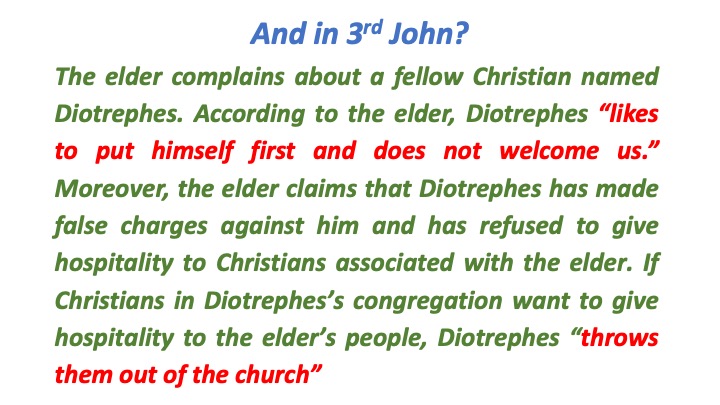
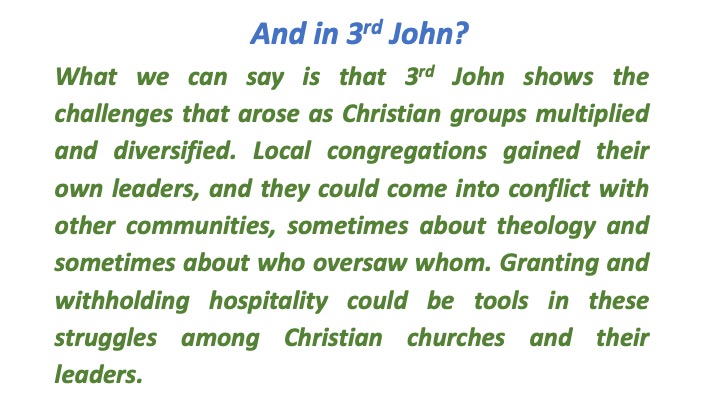
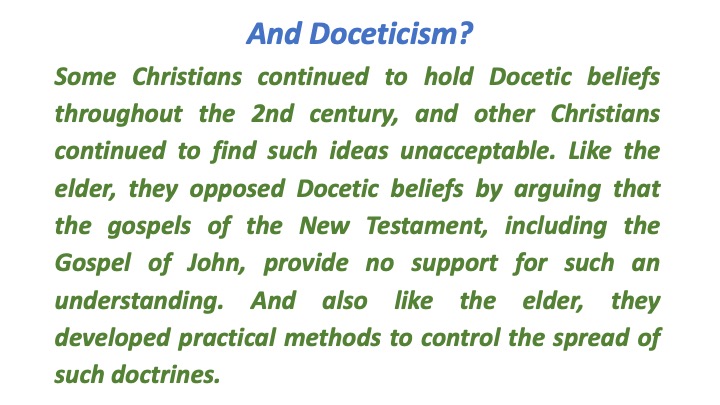
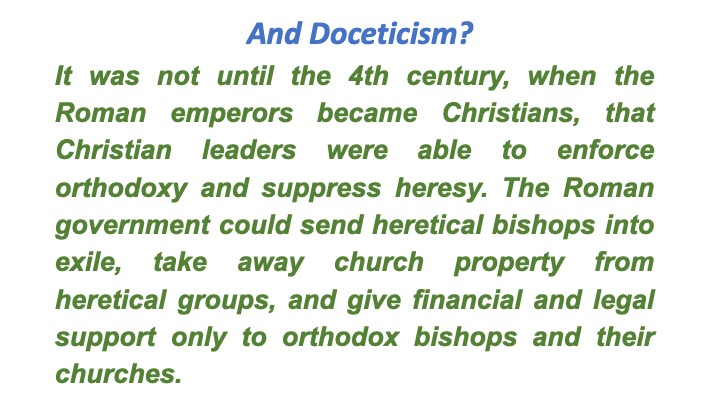
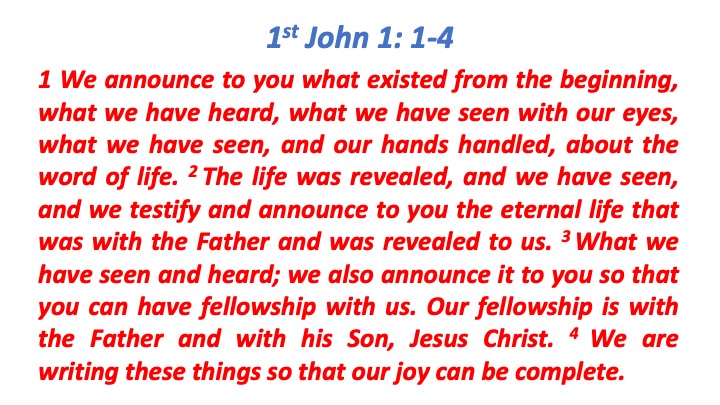
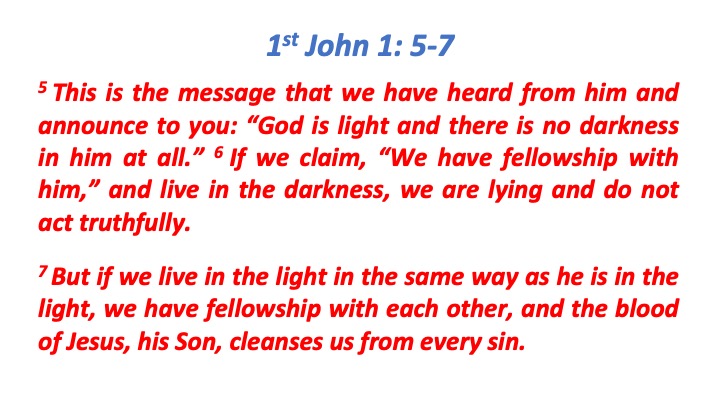
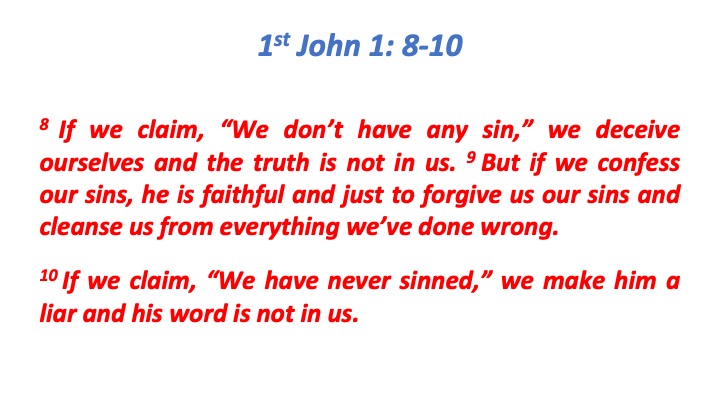
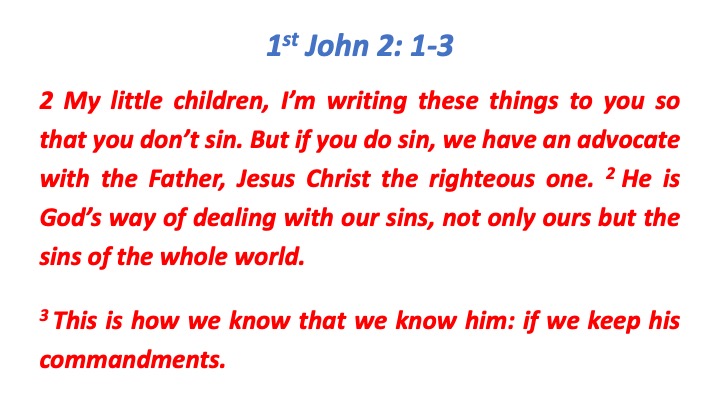
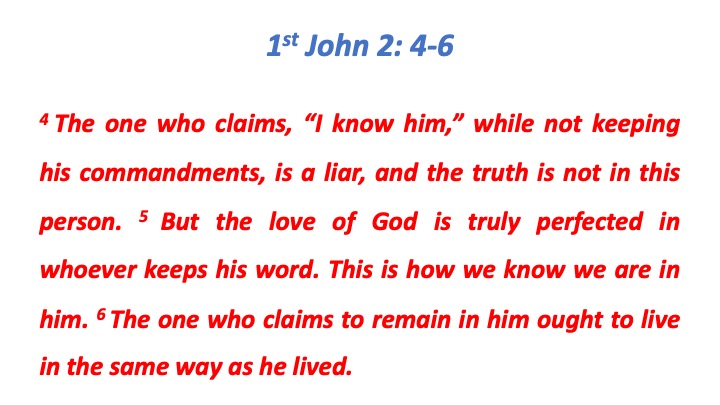
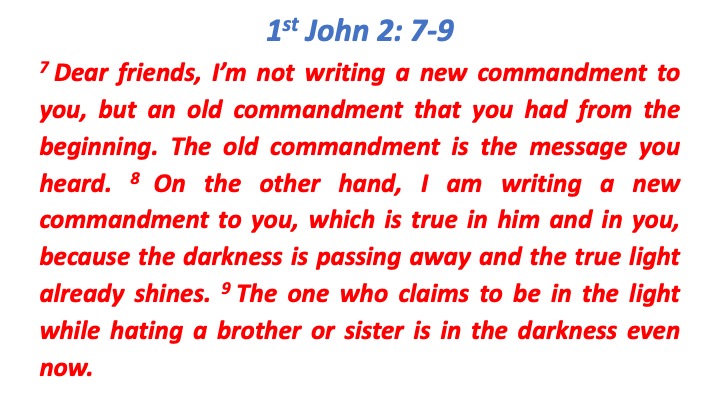
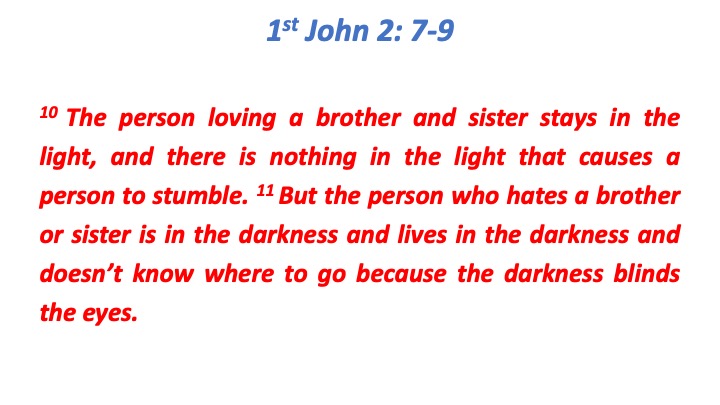
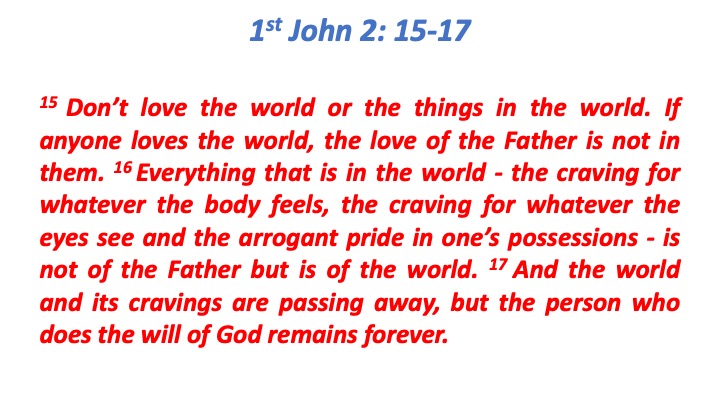
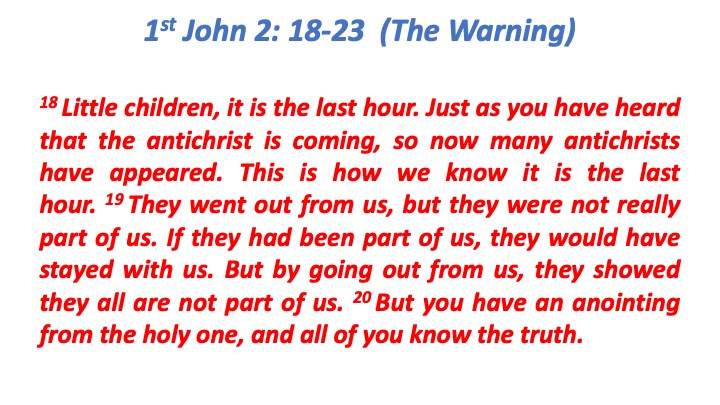
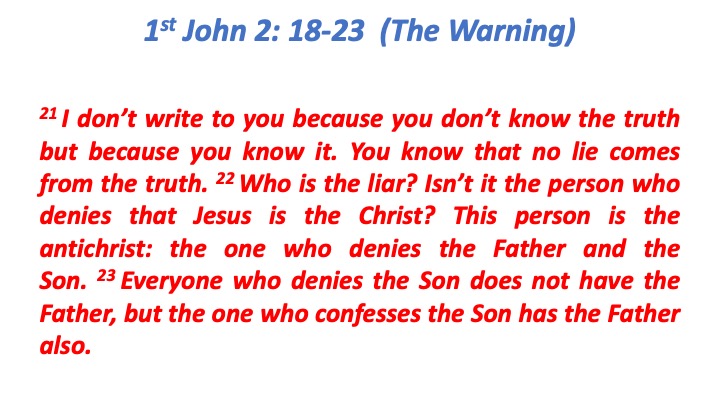
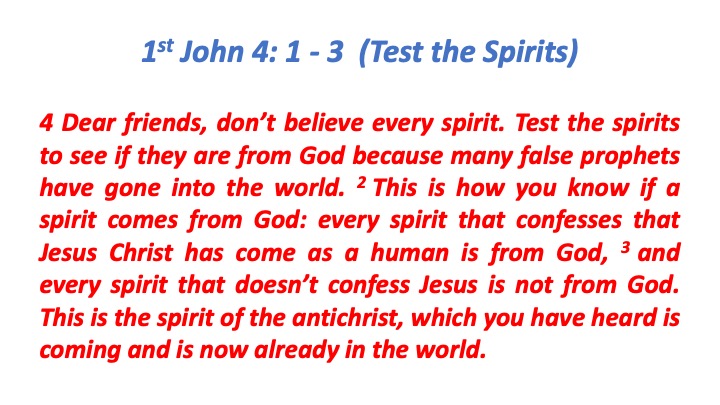
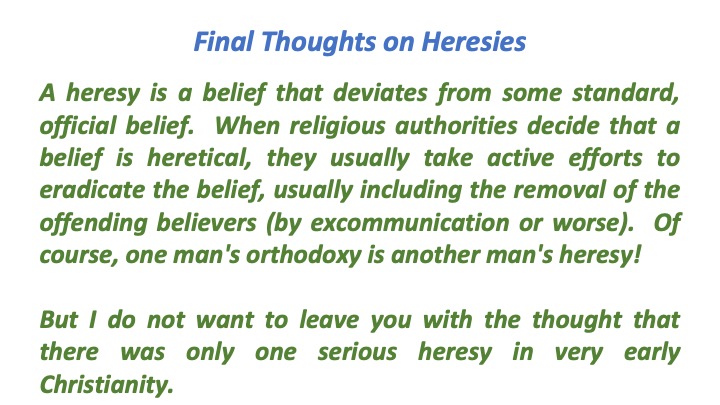
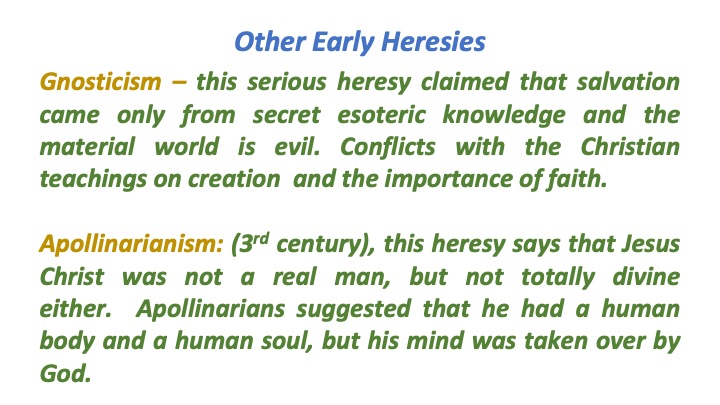
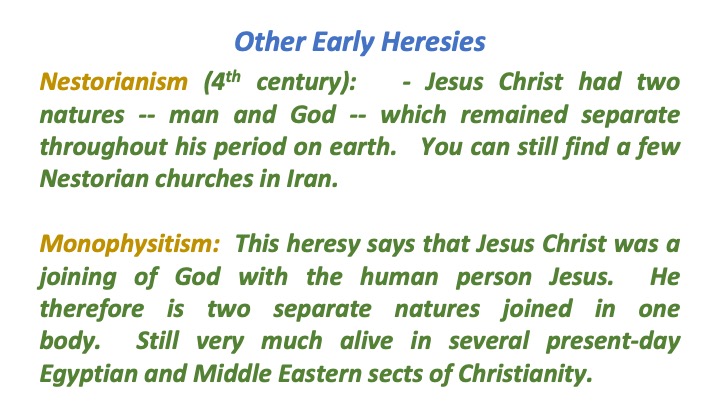
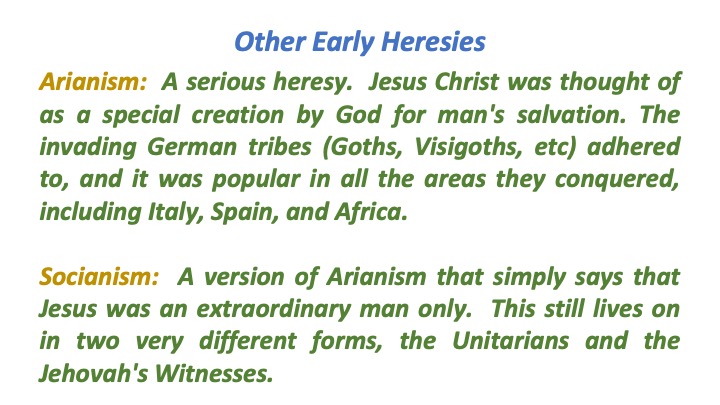
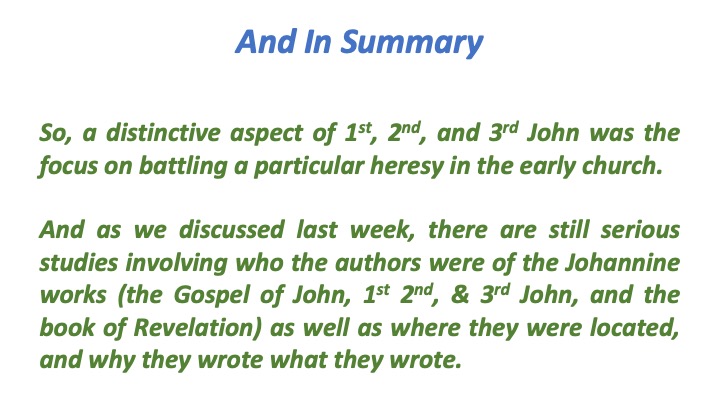

1,2,3,John 2 Text
The Three
1st 2nd & 3rd John
THE COMMUNITY OF JOHN AFTER THE GOSPEL
First – A Brief Review of Last Week
A great deal of last week was spent in setting context.
What is behind these three works? Who may have written them? When and where were they written? Why were they probably written?
Although we will refer to those same questions again this week, we are going to read quite a bit of them here in class this week.
2nd and 3rd John (the letters)
To better understand all three of these “books called John”, and with the background that I have already presented I would like to now focus on 2nd and 3rd John before we get to 1st John.
This may seem backwards, but I think you will see that reading them first gives us more clues as to what community of Christians these three “Johns” are addressed to.
2nd and 3rd John (the letters)
And in reading these short letters (2nd and 3rd John) first we will be able to see what the main theological concerns were of the writer of 1st John.
And then reading 1st John will have more meaning.
And we can eventually get clues from the short letters as to who these Johannine Christians were and where they resided.
2nd and 3rd John (the letters)
2nd John truly is a letter. The author identifies himself as “the elder” and says that he’s writing to “the elect lady and her children,” most likely a metaphor for a nearby church and its members.
At the end of the letter, the elder sends greetings from “the children of your elect sister,” probably referring to the elder’s local church and its members.
2nd John (Epistle) v. 1-3
1 From the elder.
To the chosen gentlewoman and her children, whom I truly love (and I am not the only one, but also all who know the truth), 2 because of the truth that remains with us and will be with us forever.
3 Grace, mercy, and peace from God the Father and from Jesus Christ, the Son of the Father, will be ours who live in truth and love.
The Johannine Christians now seem to have multiple groups, probably house churches like those associated with the mission of Paul back in the middle of the 1st century. These local assemblies have their own leaders, such as the elder.
These local assemblies have their own leaders, such as the elder.
They probably did not have a headquarters or leading church; instead, they formed a network of roughly equal groups.
2nd John (Epistle) v. 4-6
4 I was overjoyed to find some of your children living in the truth, just as we had been commanded by the Father. 5 Now, dear friends, I am requesting that we love each other. It’s not as though I’m writing a new command to you, but it’s one we have had from the beginning.
6 This is love: that we live according to his commands. This is the command that you heard from the beginning: live in love.
2nd John (Epistle) v. 7-9
Whoever continues in this teaching has both the Father and the Son. 10 Whoever comes to you who does not affirm this teaching should neither be received nor welcomed into your home,
11 because welcoming people like that is the same thing as sharing in their evil actions.
2nd John (Epistle) v. 10-11
10 Whoever comes to you who does not affirm this teaching should neither be received nor welcomed into your home,
11 because welcoming people like that is the same thing as sharing in their evil actions.
And 2nd John Ends v. 12-13
12 I have a lot to tell you. I don’t want to use paper and ink, but I hope to visit you and talk with you face-to-face, so that our joy can be complete.
13 Your chosen sister’s children greet you.
What Was the Problem?
Most scholars are of the view that the elder wrote this letter because he was concerned that the local community to which he wrote was in danger of adopting Docetic beliefs.
He warns about deceivers who “do not confess that Jesus Christ has come in the flesh.” He tells the community to be on guard against such teachings.
What Was the Problem?
The elder also suggests a practical way of fighting against Docetic beliefs. He writes, “Do not receive into the house or welcome anyone who comes to you and does not bring this teaching,” meaning the true teaching of the elder. To welcome a false believer is to share in that person’s evil deeds. In other words, the elder advocates withdrawal of hospitality from Christians who hold teachings that he considers false.
And the Solution?
Hospitality was an important Christian practice in the early centuries. Traveling missionaries - and even Christians traveling for other reasons depended upon local Christian communities for shelter, food, and additional support. Since Christians lacked their own buildings, even Christians who were not traveling needed individual members of the community to welcome them into their homes if they wanted to worship together.
And the Solution?
Denial of hospitality, as suggested by the elder, would pressure individual traveling Christians to change their views. Moreover, it would have represented something like a termination of diplomatic relations between the local churches involved. A church’s refusal to grant hospitality to travelers from another community indicated that the church no longer considered the other community a legitimate Christian group.
And in 3rd John?
We have no way of knowing whether the congregation to which the elder wrote in 2nd John followed his instructions, but the letter we call 3rd John reveals something of an ironic turn. In 3rd John, the elder complains that another Christian group is not welcoming travelers from his community. The tactic that the elder had advocated in 2nd John was now being used against him!
3rd John (Epistle) v. 1-3
1 From the elder.
To my dear friend Gaius, whom I truly love.
2 Dear friend, I’m praying that all is well with you and that you enjoy good health in the same way that you prosper spiritually.
3 I was overjoyed when the brothers and sisters arrived and spoke highly of your faithfulness to the truth, shown by how you live according to the truth.
3rd John (Epistle) v. 4 - 8
4 I have no greater joy than this: to hear that my children are living according to the truth. 5 Dear friend, you act faithfully in whatever you do for our brothers and sisters, even though they are strangers. 6 They spoke highly of your love in front of the church. You all would do well to provide for their journey in a way that honors God, 7 because they left on their journey for the sake of Jesus Christ without accepting any support from the Gentiles. 8 Therefore, we ought to help people like this so that we can be coworkers with the truth.
3rd John (Epistle) v. 9-11
9 I wrote something to the church, but Diotrephes, who likes to put himself first, doesn’t welcome us. 10 Because of this, if I come, I will bring up what he has done - making unjustified and wicked accusations against us. And as if that were not enough, he not only refuses to welcome the brothers and sisters but stops those who want to do so and even throws them out of the church! 11 Dear friend, don’t imitate what is bad but what is good.
And 3rd John Ends v. 12-15
12 Everyone speaks highly of Demetrius, even the truth itself. We also speak highly of him, and you know that what we say is true.
13 I have a lot to say to you, but I don’t want to use pen and ink. 14 I hope to see you soon, and we will speak face-to-face.
15 Peace be with you. Your friends here greet you. Greet our friends there by name.
And in 3rd John?
The circumstances under which the elder wrote 3 John are not entirely clear. The letter is addressed to a Christian named Gaius, who seems to be a leader of some kind. The elder praises Gaius and his community for showing hospitality to people from the elder’s community. This shows that Gaius and his people walk in the way of truth and that they love other Christians.
And in 3rd John?
The elder complains about a fellow Christian named Diotrephes. According to the elder, Diotrephes “likes to put himself first and does not welcome us.” Moreover, the elder claims that Diotrephes has made false charges against him and has refused to give hospitality to Christians associated with the elder. If Christians in Diotrephes’s congregation want to give hospitality to the elder’s people, Diotrephes “throws them out of the church”
What we can say is that 3 John shows the challenges that arose as Christian groups multiplied and diversified. Local congregations gained their own leaders, and they could come into conflict with other communities, sometimes about theology and sometimes about who was in charge of whom. Granting and withholding hospitality could be tools in these struggles among Christian churches and their leaders.
Some Christians continued to hold Docetic beliefs throughout the 2nd century, and other Christians continued to find such ideas unacceptable. Like the elder, they opposed Docetic beliefs by arguing that the gospels of the New Testament, including the Gospel of John, provide no support for such an understanding. And also like the elder, they developed practical methods to control the spread of such doctrines.
It was not until the 4th century, when the Roman emperors became Christians, that Christian leaders were able to enforce orthodoxy and suppress heresy. The Roman government could send heretical bishops into exile, take away church property from heretical groups, and give financial and legal support only to orthodox bishops and their churches.
1st John 1: 1-4
1 We announce to you what existed from the beginning, what we have heard, what we have seen with our eyes, what we have seen and our hands handled, about the word of life. 2 The life was revealed, and we have seen, and we testify and announce to you the eternal life that was with the Father and was revealed to us. 3 What we have seen and heard; we also announce it to you so that you can have fellowship with us. Our fellowship is with the Father and with his Son, Jesus Christ. 4 We are writing these things so that our joy can be complete.
1st John 1: 5-7
5 This is the message that we have heard from him and announce to you: “God is light and there is no darkness in him at all.” 6 If we claim, “We have fellowship with him,” and live in the darkness, we are lying and do not act truthfully.
7 But if we live in the light in the same way as he is in the light, we have fellowship with each other, and the blood of Jesus, his Son, cleanses us from every sin.
1st John 1: 8-10
8 If we claim, “We don’t have any sin,” we deceive ourselves and the truth is not in us. 9 But if we confess our sins, he is faithful and just to forgive us our sins and cleanse us from everything we’ve done wrong.
10 If we claim, “We have never sinned,” we make him a liar and his word is not in us.
1st John 2: 1-3
2 My little children, I’m writing these things to you so that you don’t sin. But if you do sin, we have an advocate with the Father, Jesus Christ the righteous one. 2 He is God’s way of dealing with our sins, not only ours but the sins of the whole world.
3 This is how we know that we know him: if we keep his commandments. 4 The one who claims, “I know him,” while not keeping his commandments, is a liar, and the truth is not in this person.
1st John 2: 4-6
4 The one who claims, “I know him,” while not keeping his commandments, is a liar, and the truth is not in this person. 5 But the love of God is truly perfected in whoever keeps his word. This is how we know we are in him. 6 The one who claims to remain in him ought to live in the same way as he lived.
1st John 2: 7-9
7 Dear friends, I’m not writing a new commandment to you, but an old commandment that you had from the beginning. The old commandment is the message you heard. 8 On the other hand, I am writing a new commandment to you, which is true in him and in you, because the darkness is passing away and the true light already shines. 9 The one who claims to be in the light while hating a brother or sister is in the darkness even now.
1st John 2: 10-11
10 The person loving a brother and sister stays in the light, and there is nothing in the light that causes a person to stumble. 11 But the person who hates a brother or sister is in the darkness and lives in the darkness, and doesn’t know where to go because the darkness blinds the eyes.
1st John 2: 15-17
15 Don’t love the world or the things in the world. If anyone loves the world, the love of the Father is not in them. 16 Everything that is in the world - the craving for whatever the body feels, the craving for whatever the eyes see and the arrogant pride in one’s possessions - is not of the Father but is of the world. 17 And the world and its cravings are passing away, but the person who does the will of God remains forever.
1st John 2: 18-23 (The Warning)
18 Little children, it is the last hour. Just as you have heard that the antichrist is coming, so now many antichrists have appeared. This is how we know it is the last hour. 19 They went out from us, but they were not really part of us. If they had been part of us, they would have stayed with us. But by going out from us, they showed they all are not part of us. 20 But you have an anointing from the holy one, and all of you know the truth.
21 I don’t write to you because you don’t know the truth but because you know it. You know that no lie comes from the truth. 22 Who is the liar? Isn’t it the person who denies that Jesus is the Christ? This person is the antichrist: the one who denies the Father and the Son. 23 Everyone who denies the Son does not have the Father, but the one who confesses the Son has the Father also.
1st John 4: 1 - 3 (Test the Spirits)
4 Dear friends, don’t believe every spirit. Test the spirits to see if they are from God because many false prophets have gone into the world. 2 This is how you know if a spirit comes from God: every spirit that confesses that Jesus Christ has come as a human[a] is from God, 3 and every spirit that doesn’t confess Jesus is not from God. This is the spirit of the antichrist, which you have hea.d is coming and is now already in the world.
Final Thoughts on Heresies
A heresy is a belief that deviates from some standard, official belief. When religious authorities decide that a belief is heretical, they usually take active efforts to eradicate the belief, usually including the removal of the offending believers (by excommunication or worse). Of course, one man's orthodoxy is another man's heresy!
But I do not want to leave you with the thought that there was only one serious heresy in very early Christianity.
Other Early Heresies
Gnosticism – this serious heresy claimed that salvation came only from secret esoteric knowledge and the material world is evil. Conflicts with the Christian teachings on creation and the importance of faith.
Apollinarianism: (3rd century), this heresy says that Jesus Christ was not a real man, but not totally divine either. Apollinarians suggested that he had a human body and a human soul, but his mind was taken over by God.
Other Early Heresies
Nestorianism (4th century): - Jesus Christ had two natures -- man and God -- which remained separate throughout his period on earth. You can still find a few Nestorian churches in Iran.
Monophysitism: This heresy says that Jesus Christ was a joining of God with the human person Jesus. He therefore is two separate natures joined in one body. Still very much alive in several present-day Egyptian and Middle Eastern sects of Christianity.
Other Early Heresies
Arianism: A serious heresy. Jesus Christ was thought of as a special creation by God for man's salvation. The invading German tribes (Goths, Visigoths, etc) adhered to, and it was popular in all the areas they conquered, including Italy, Spain, and Africa.
Socianism: A version of Arianism that simply says that Jesus was an extraordinary man only. This still lives on in two very different forms, the Unitarians and the Jehovah's Witnesses.
And In Summary
So, a distinctive aspect of 1st, 2nd, and 3rd John was the focus on battling a particular heresy in the early church.
And as we discussed last week, there is still serious studies involving who the authors were of the Johannine works (the Gospel of John, 1st 2nd, & 3rd John, and the book of Revelation) as well as where they were located, and why they wrote what they wrote.
The End
Thank You